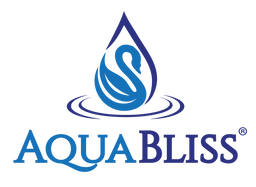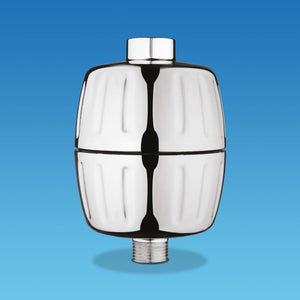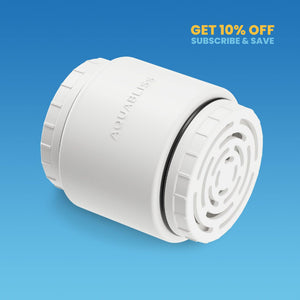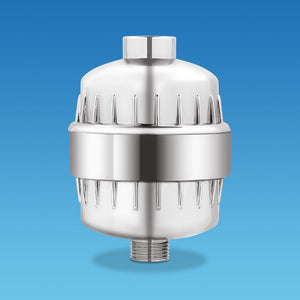Water is essential for human consumption, yet the debate over tap water vs bottled water seems never-ending. Is bottled water healthier? Should we just drink tap water?
With concerns over environmental impacts, safety standards, and costs, it's important to consider all factors before choosing what kind of drinking water is best. In this post, we’ll dive into the tap water vs bottled water debate to help you make an informed choice.
Drinking Water Options: Tap, Bottled, and Filtered
Before deciding, it's key to understand the differences between tap water, bottled water, and filtered water.
Tap Water

In many developed countries, municipal tap water is considered safe for human consumption and meets strict regulations set by the Environmental Protection Agency (EPA) under the Safe Drinking Water Act.
The public water systems provide clean drinking water to millions, and it’s routinely tested for contaminants such as chlorine and heavy metals. However, tap water can vary widely depending on your location.
For example, some community water systems may add minerals like fluoride to help improve dental health. Meanwhile, some areas, particularly rural regions or those affected by natural disasters, may struggle with water quality issues.
Bottled Water
On the other hand, bottled water is regulated by the Food and Drug Administration (FDA) as a packaged food product. While bottled water companies often market their product as cleaner and safer, a large portion of bottled water is actually just tap water that has undergone additional filtration, including reverse osmosis or other processes.
Not all bottled water brands are created equal. Some source water from springs, while others simply repackage municipal tap water. In fact, studies have found that many bottled water companies use public water systems as their source.
Filtered Water

If you’re concerned about the safety or taste of tap water, investing in a filtered water system may be a middle-ground option. Filters can remove contaminants like chlorine, pesticides, and even some heavy metals, providing safe drinking water without the environmental toll of plastic bottles.
Pros and Cons of Tap Water and Bottled Water
Making the choice between tap water and bottled water isn’t always simple. Both options come with their own set of advantages and disadvantages, depending on factors such as cost, convenience, environmental impact, and health considerations.
Below, we take a detailed look at the pros and cons of both tap water and bottled water to help you make an informed decision.
Pros of Tap Water
Tap water remains a popular choice for millions of people, particularly because of its affordability and accessibility.
Below are the pros of tap water:
- Cost: Tap water is incredibly cheap, especially when compared to bottled water. You pay taxes for access to clean water, making it an economically smart option.
- Environmental Impact: Choosing to drink tap water significantly reduces plastic waste from plastic containers and bottles.
- Availability: Tap water is widely available and often easily accessible.
Cons of Tap Water
While tap water is a great choice for many, it does come with some drawbacks.
Below are the cons of tap water:
- Taste: Depending on local treatment processes, some people may notice an unpleasant taste, often due to added minerals like fluoride or chemicals used for disinfection.
- Quality Variability: While public water systems in developed countries are generally safe, contamination risks from aging infrastructure, natural disasters, or specific locations (e.g., Flint, Michigan) still exist.
Pros of Bottled Water
Bottled water offers a level of convenience and consistency that appeals to many consumers.
Below are the pros of bottled water:
- Convenience: Bottled water is portable and convenient, making it a go-to choice in emergency situations or areas with questionable tap water quality.
- Consistency: Many prefer the consistent taste of bottled water, particularly when sourced from natural spring water or artesian water.
Cons of Bottled Water
Despite its convenience, bottled water comes with some significant downsides.
Below are the cons of bottled water:
- Cost: Buying bottled water frequently can add up, costing significantly more than using a filter or relying on tap water.
- Environmental Impact: The production and disposal of plastic bottles are major contributors to pollution, requiring vast resources and creating waste that takes hundreds of years to degrade.
- Quality Concerns: Not all bottled waters are created equal, with some merely repackaged municipal tap water or filtered water. Always check the source and filtration methods used by bottled water brands.
Environmental and Health Impacts
Both tap water and bottled water have distinct environmental and health impacts that affect not only individual consumers but also the planet as a whole. Understanding these impacts can help you make more informed choices about the type of water you consume.
Environmental Impact
The environmental toll of bottled water is substantial. From the extraction of water to the manufacturing of plastic bottles, the bottled water industry contributes significantly to carbon emissions and plastic pollution. By contrast, tap water requires far less energy and produces no plastic containers.
Health Impacts
When it comes to health, both tap water and bottled water are considered generally safe in developed countries, meeting specific safety standards. However, the presence of microplastics in bottled water and other contaminants can raise health concerns.
On the other hand, tap water is subject to EPA regulations, ensuring safe drinking water for the majority of consumers.
So, Which Should You Choose?
The choice between tap water and bottled water comes down to personal preference, convenience, and environmental concerns. While bottled water can be a convenient and portable option, tap water (especially when filtered) offers a more sustainable and cost-effective solution.
No matter your choice, investing in a high-quality water filter system like those offered by AquaBliss can help ensure that you have access to clean water free from harmful contaminants.
Filters are an eco-friendly solution that can improve the taste, safety, and overall quality of tap water, making it an excellent alternative to drinking bottled water.
Clean Water from AquaBliss Filters

At AquaBliss, we are passionate about improving water quality. Our filters are designed to combat issues like hard water, which can lead to health problems such as dry skin, brittle nails, and hair damage.
Whether you’re dealing with minerals added to water or high levels of contaminants, our filters offer a convenient solution to help you get the most out of your water.







